On July 5, Shenzhen University (SZU) launched its Academician-led Tech Innovation Training Camp with an inauguration ceremony at the Alumni Plaza on the Yuehai Campus. This new initiative leverages SZU's strengths in technological innovation led by a team of academicians. Supported by the Greater Bay Area International Institute for Innovations (GBA I3), these academicians have taken the lead in establishing the X Innovation Centers at the Camp, where a range of innovative projects will be undertaken under their expert guidance. The program is designed for undergraduates, offering a comprehensive development path that integrates professional education, innovation training, exploration of technological innovations, and commercialization of innovation achievements. It aims to foster students' mindset and skills in technological innovation, as well as their expertise in technological entrepreneurship.
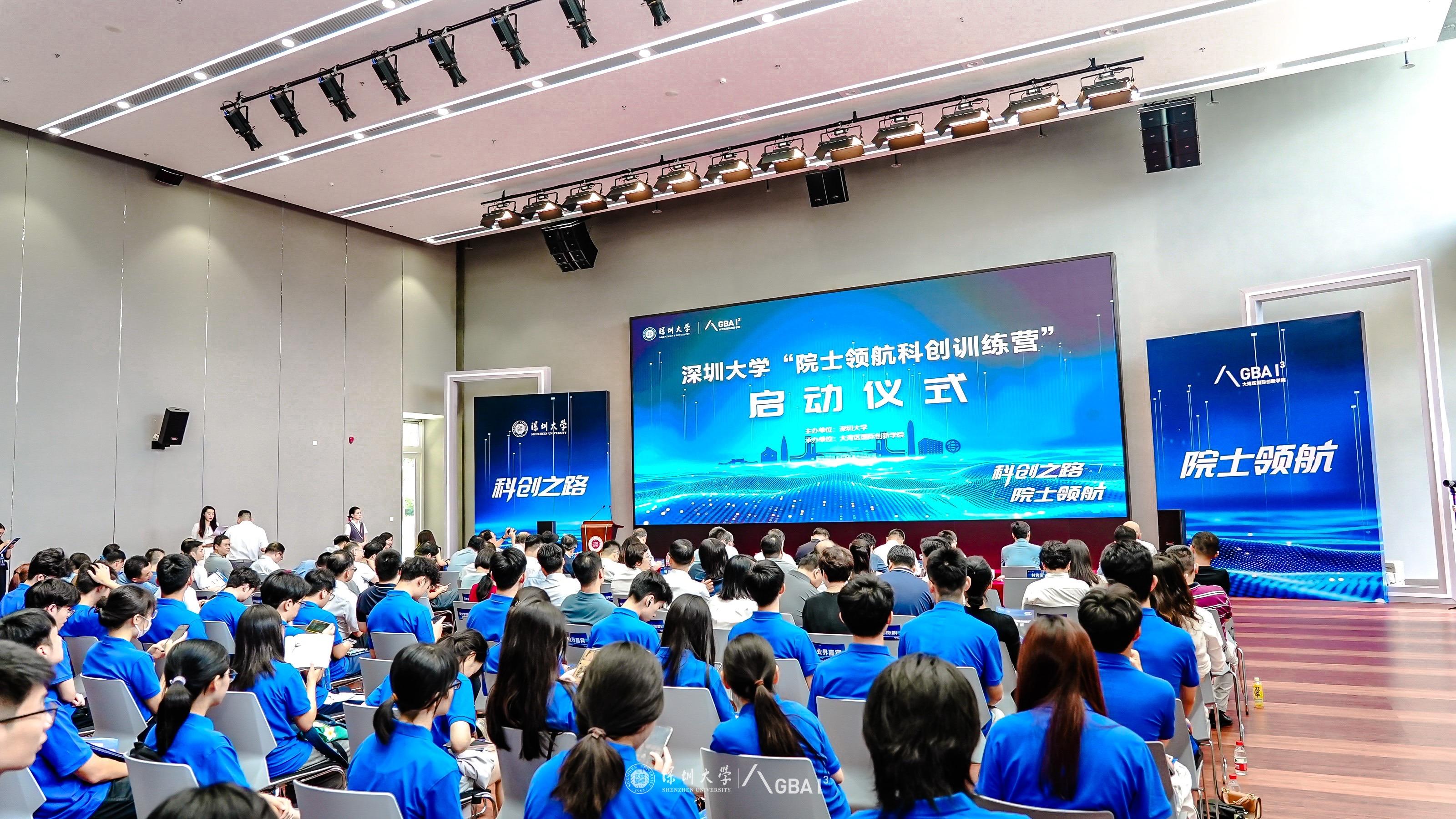 The inauguration ceremony was attended by distinguished guests, including Li Qingquan, Secretary of the Shenzhen University Party Committee and Academician of the Chinese Academy of Engineering; Mao Junfa, President of Shenzhen University and Academician of the Chinese Academy of Sciences; Wang Rujin, Deputy Director of the Shenzhen Municipal Education Bureau; Meng Jianmin, Academician of the Chinese Academy of Engineering; Peng Xiaojun, Academician of the Chinese Academy of Sciences and Dean of the College of Materials Science and Engineering at Shenzhen University; Zhang Xueji, Academician of the American Institute for Medical and Biological Engineering; and Wang Juhong, Vice President of Tencent, as well as other industry experts and investors. The ceremony was hosted by Zhang Xiaohong, Vice President of Shenzhen University.
The inauguration ceremony was attended by distinguished guests, including Li Qingquan, Secretary of the Shenzhen University Party Committee and Academician of the Chinese Academy of Engineering; Mao Junfa, President of Shenzhen University and Academician of the Chinese Academy of Sciences; Wang Rujin, Deputy Director of the Shenzhen Municipal Education Bureau; Meng Jianmin, Academician of the Chinese Academy of Engineering; Peng Xiaojun, Academician of the Chinese Academy of Sciences and Dean of the College of Materials Science and Engineering at Shenzhen University; Zhang Xueji, Academician of the American Institute for Medical and Biological Engineering; and Wang Juhong, Vice President of Tencent, as well as other industry experts and investors. The ceremony was hosted by Zhang Xiaohong, Vice President of Shenzhen University.
SZU has thoroughly re-evaluated its approach to innovation and entrepreneurship by using the Training Camp as a testbed for new ideas. The Camp is designed to integrate innovation education into every stage of talent development, empowering students to be bolder and more effective in their innovation and entrepreneurship. It focuses on cutting-edge industry trends and aims to develop future-ready technological and entrepreneurial skills. Emphasizing independent exploration, problem-solving, self-directed learning, and mentorship, the Camp features project-based learning, integrated training, small class settings, and personalized instruction. Through close collaboration among government, industry, academia, and research institutions, the Camp is committed to cultivating a new generation of industry leaders who are well-prepared for future challenges.
Students who excel and achieve significant results in the Camp will have the opportunity to gain direct admission to graduate programs, ensuring a smooth transition from undergraduate to graduate studies. Those studying at SZU may also have the chance to be mentored by academician teams, which will help refine their achievements and advance their research. Through project participation, students will enhance their technological innovation skills. Additionally, they can obtain further project incubation support from on- and off-campus platforms such as the SZU Entrepreneurial Park, helping them turn high-level innovations into successful ventures.
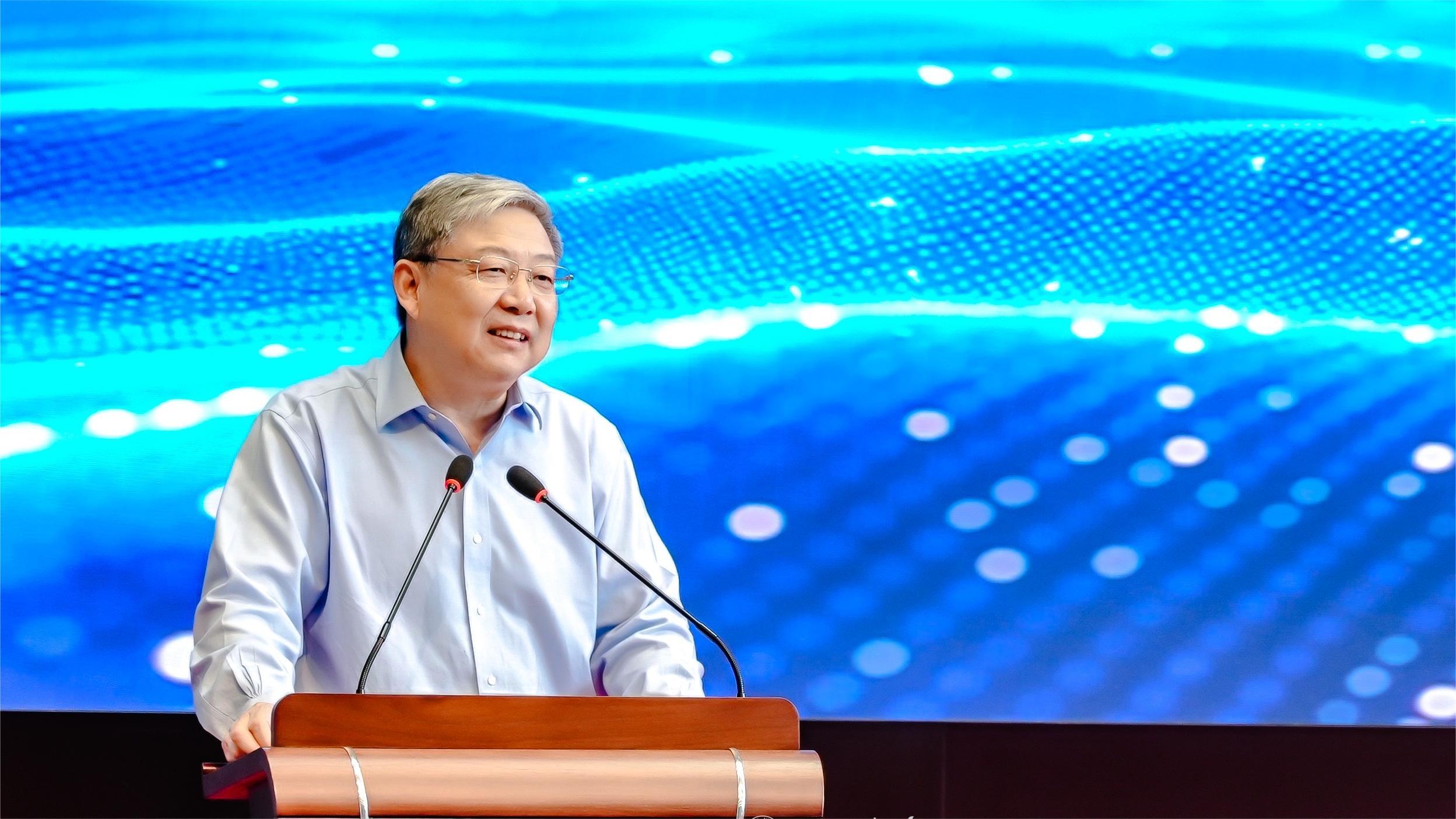
Li Qingquan described the Camp as an exploration of new approaches to innovation and entrepreneurship education. It aims to introduce a new learning model that combines interdisciplinary problem-solving with traditional knowledge transfer. Mr. Li hopes that all faculty and students will collaborate to explore more experience in innovation and entrepreneurship, contributing to the development of SZU and technological innovation in the Guangdong-Hong Kong-Macao Greater Bay Area.
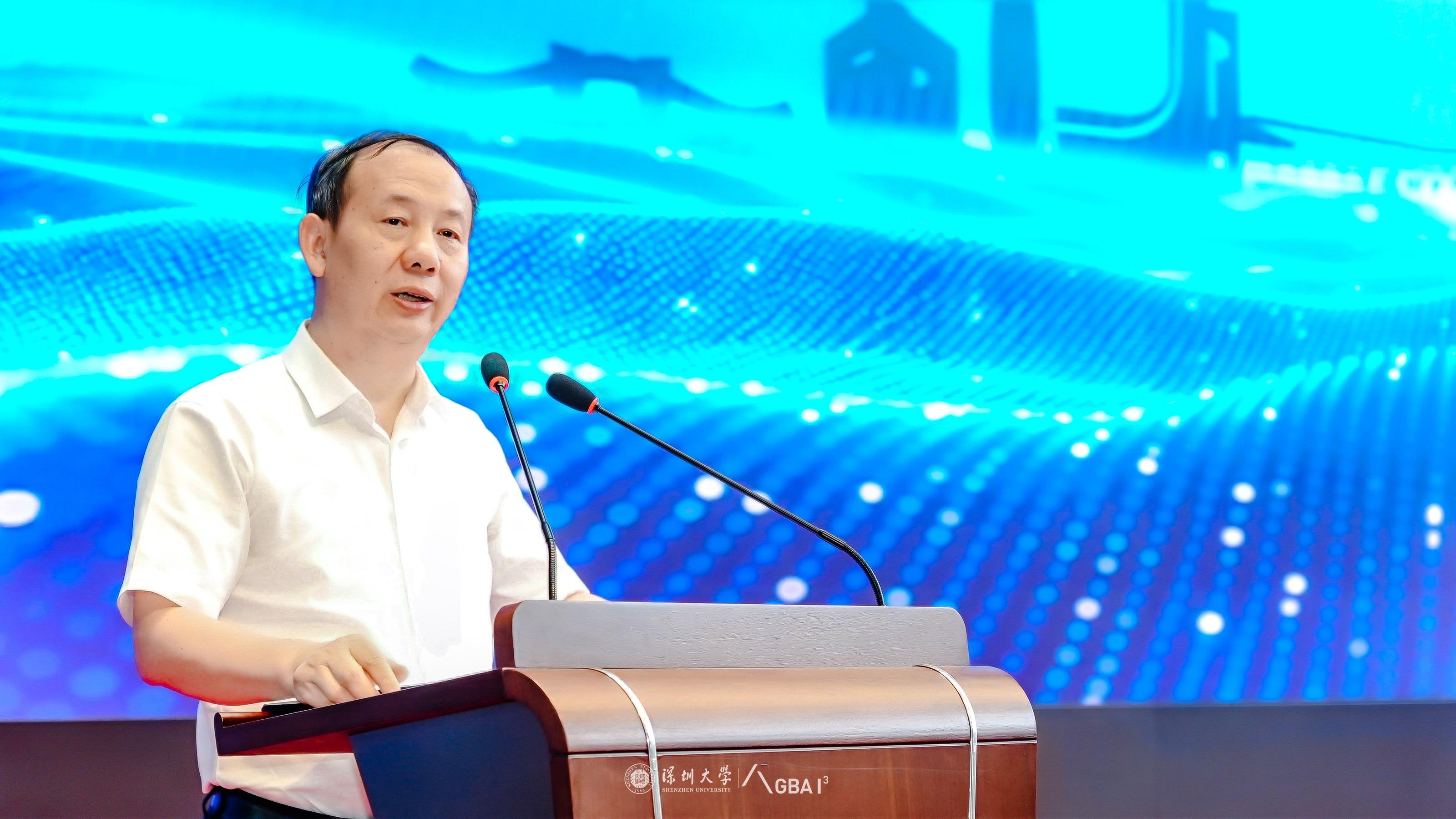
In his speech, Mao Junfa described the Training Camp as a forward-thinking response to contemporary needs. He called it a vivid example of deepening educational reform and fostering technological innovation. According to Mr. Mao, the Camp serves as a powerful platform to unleash the innovative potential of young students and is crucial for building an open and collaborative innovation ecosystem. He encouraged students to not only seek theoretical breakthroughs but also focus on creating practical value, so they can contribute their knowledge and efforts to society.
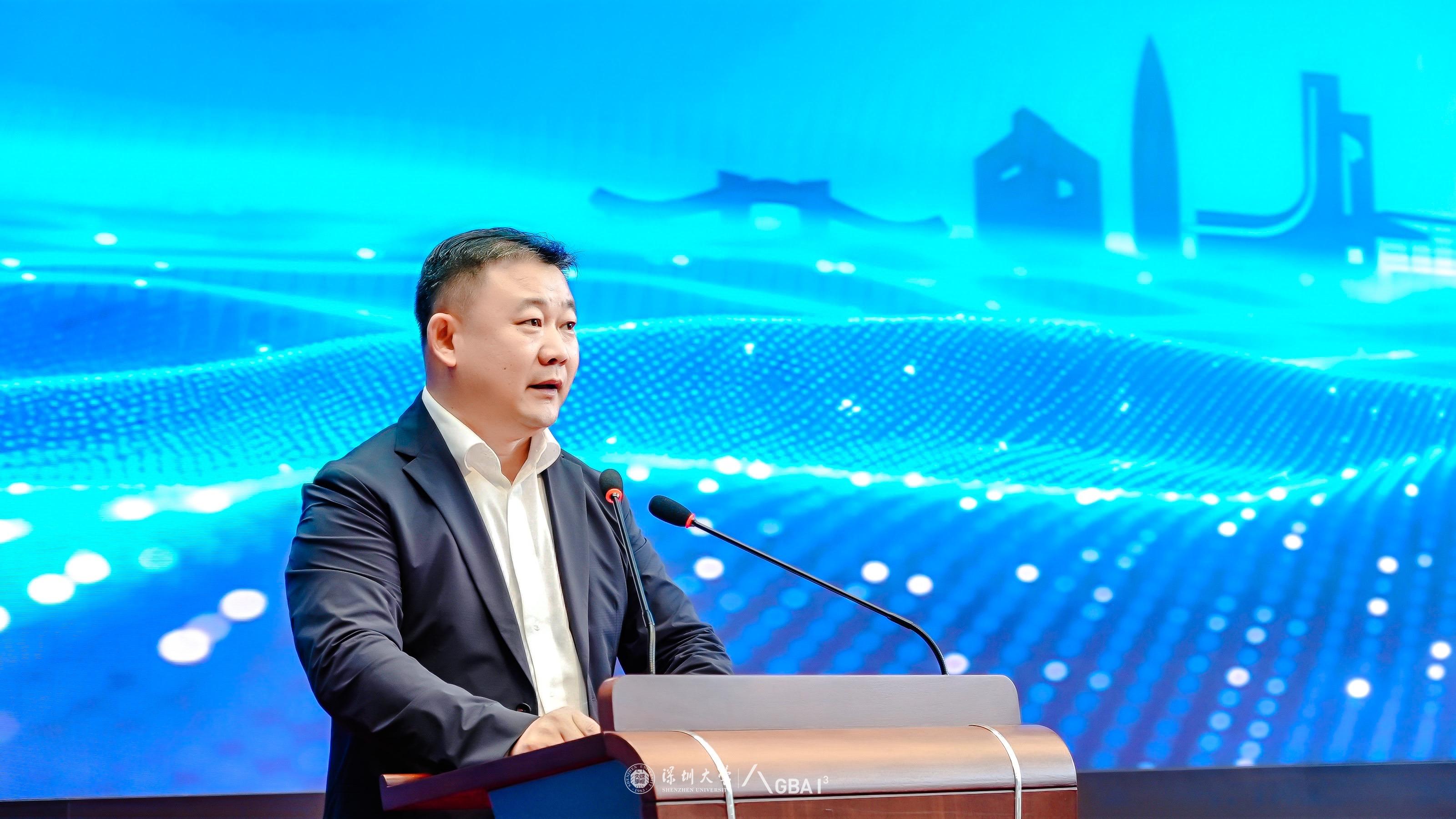
Wang Rujin stated in his speech that SZU's launch of the Training Camp is a significant exploration of integrating innovation with educational mechanisms in science and technology. He also highlighted that this initiative provides an exciting opportunity to cultivate top-tier innovative talent. Mr. Wang urged SZU students to make the most of this valuable opportunity, dedicate themselves to their studies, focus on cutting-edge developments, and strive for excellence. He expressed his expectation that, under the guidance of academicians and experts, SZU will accelerate the development of a new talent development model and produce a wave of leading innovators and entrepreneurs who will contribute to achieving high-level scientific and technological independence in Shenzhen and across the country.
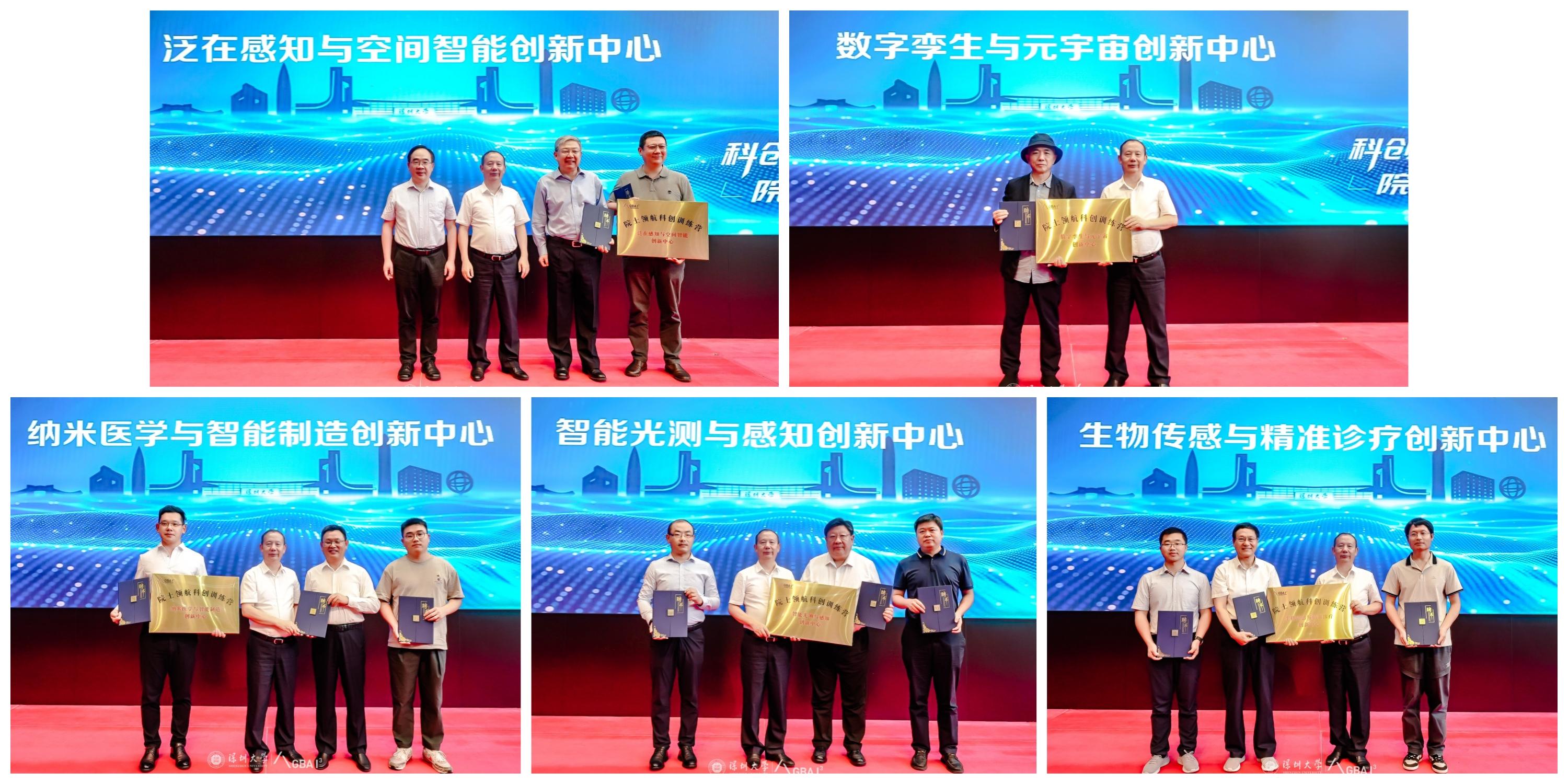
To ensure effective, problem-driven training in small classes, the Camp has established Innovation Centers that focus on five key areas. These areas of focus include Ubiquitous Sensing and Spatial Intelligence, led by Academician Li Qingquan's team; Digital Twin and the Metaverse, led by Academician Meng Jianmin's team; Nanomedicine and Intelligent Manufacturing, led by Academician Peng Xiaojun's team; Intelligent Optical Measurement and Sensing, led by Academician Yu Qifeng's team; and Biosensing and Precision Diagnosis and Treatment, led by Academician Zhang Xueji's team. These teams have also been appointed as on-campus mentors for the GBA I3. During the launch ceremony, Mao Junfa presented plaques to each center and issued appointment certificates to the academicians.
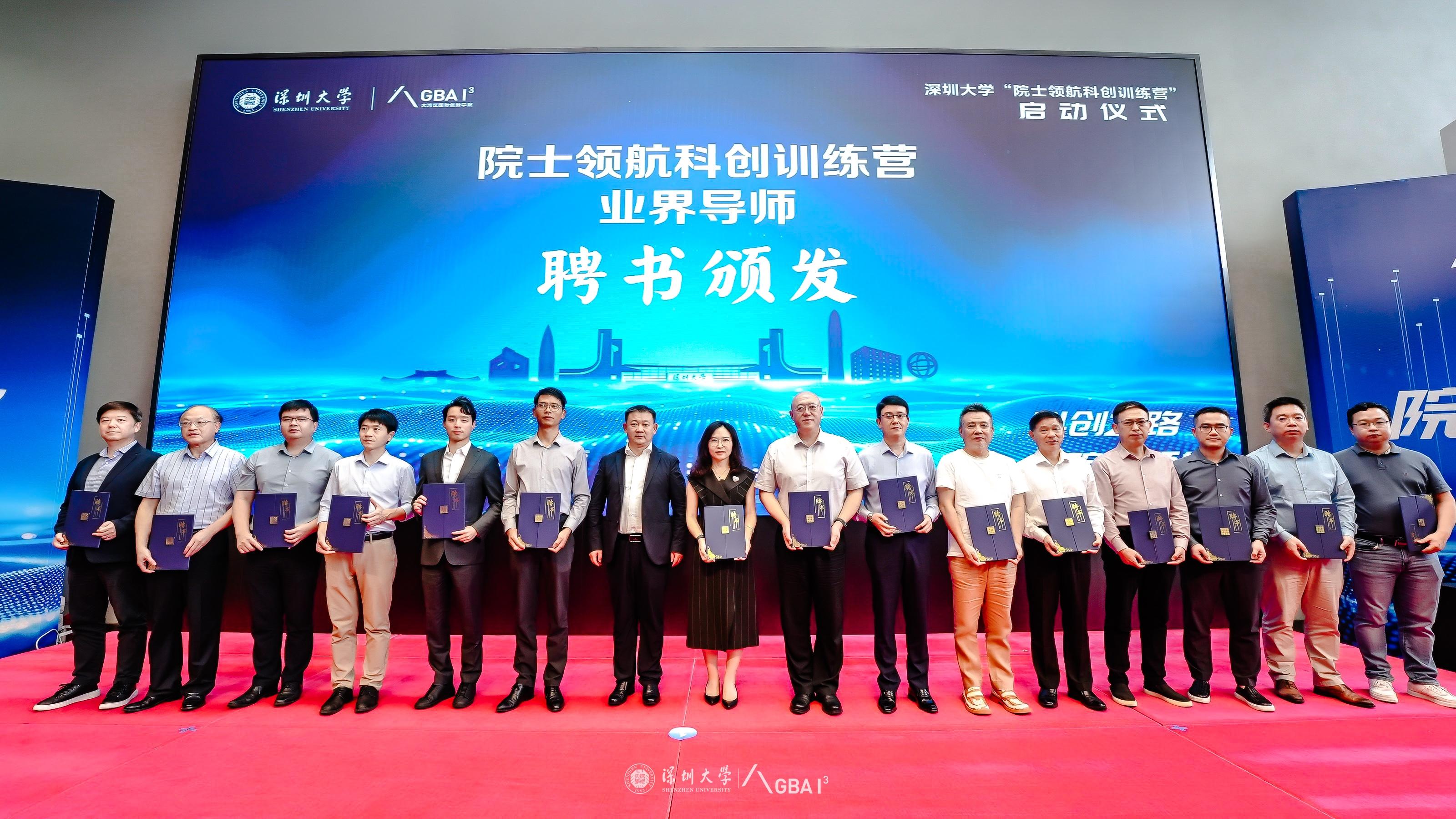
Additionally, the Camp has enlisted several industry and investment experts as external mentors. These mentors come from prominent organizations such as Tencent, Huawei, Beijing Wanxue Education Technology Co., Ltd., Shenzhen Capital Group, Shenzhen Academy of Metrology and Quality Inspection, Shenzhen Leaguer Co., Ltd., Shenzhen Intelligence Ally Technology Co., Ltd., Shenzhen Major Industry Investment Group Co., Ltd., Shenzhen Airport Group, Shenzhen Exchange Group, Insta360, Xinde Capital Group, Cheerland Nanke Gene Pharmaceutical Co., Ltd., Bounsea Capital, and Shenzhen Shenguangxing Technology Co., Ltd. Wang Rujin awarded appointment certificates to these external mentors.
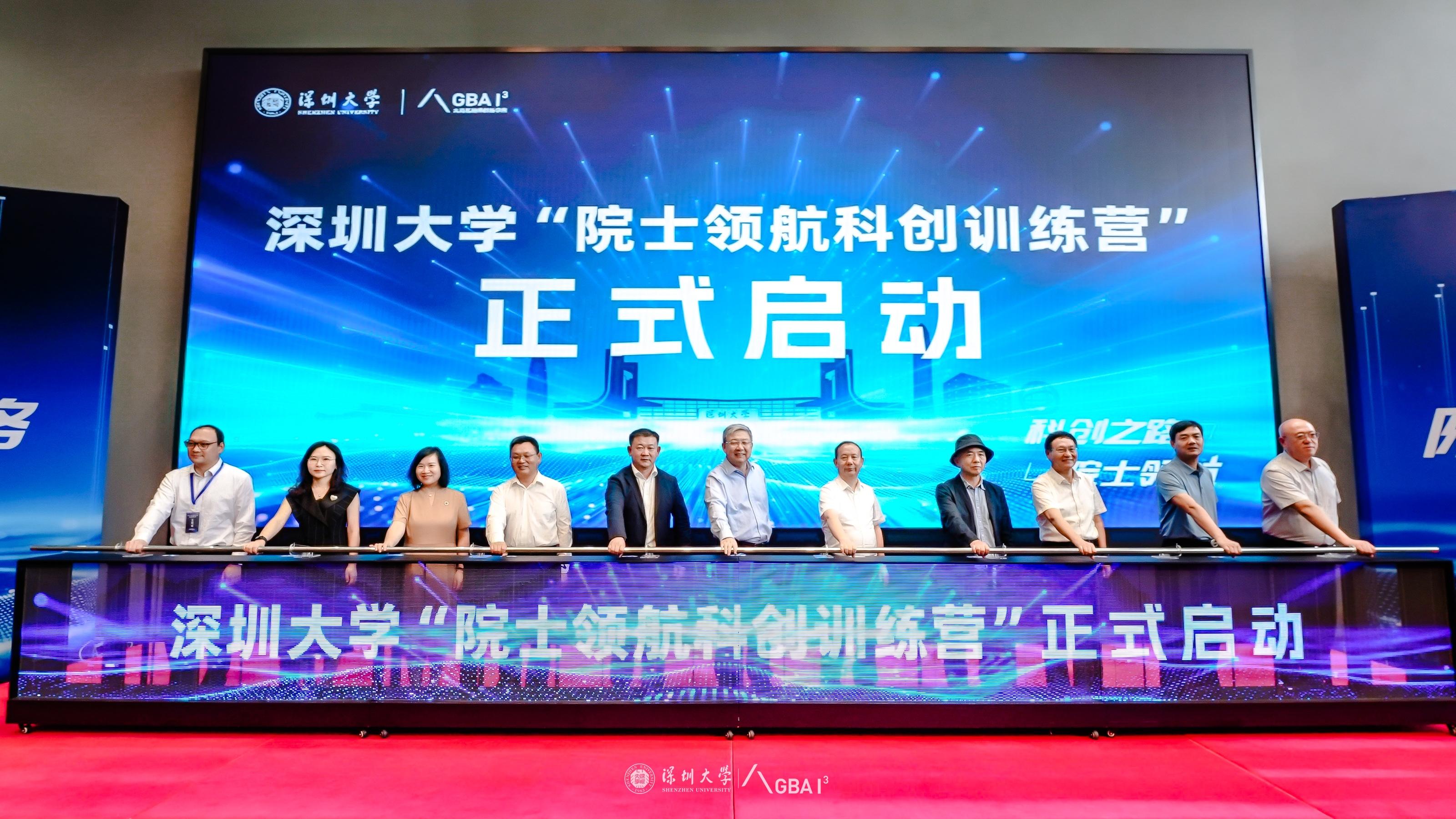
At the ceremony, leaders and guests together initiated the launch of SZU's first Academician-led Tech Innovation Training Camp. Following the ceremony, the Camp hosted a University-Industry Collaborative Education Forum and a Teacher-Student Meet-and-Greet session.

